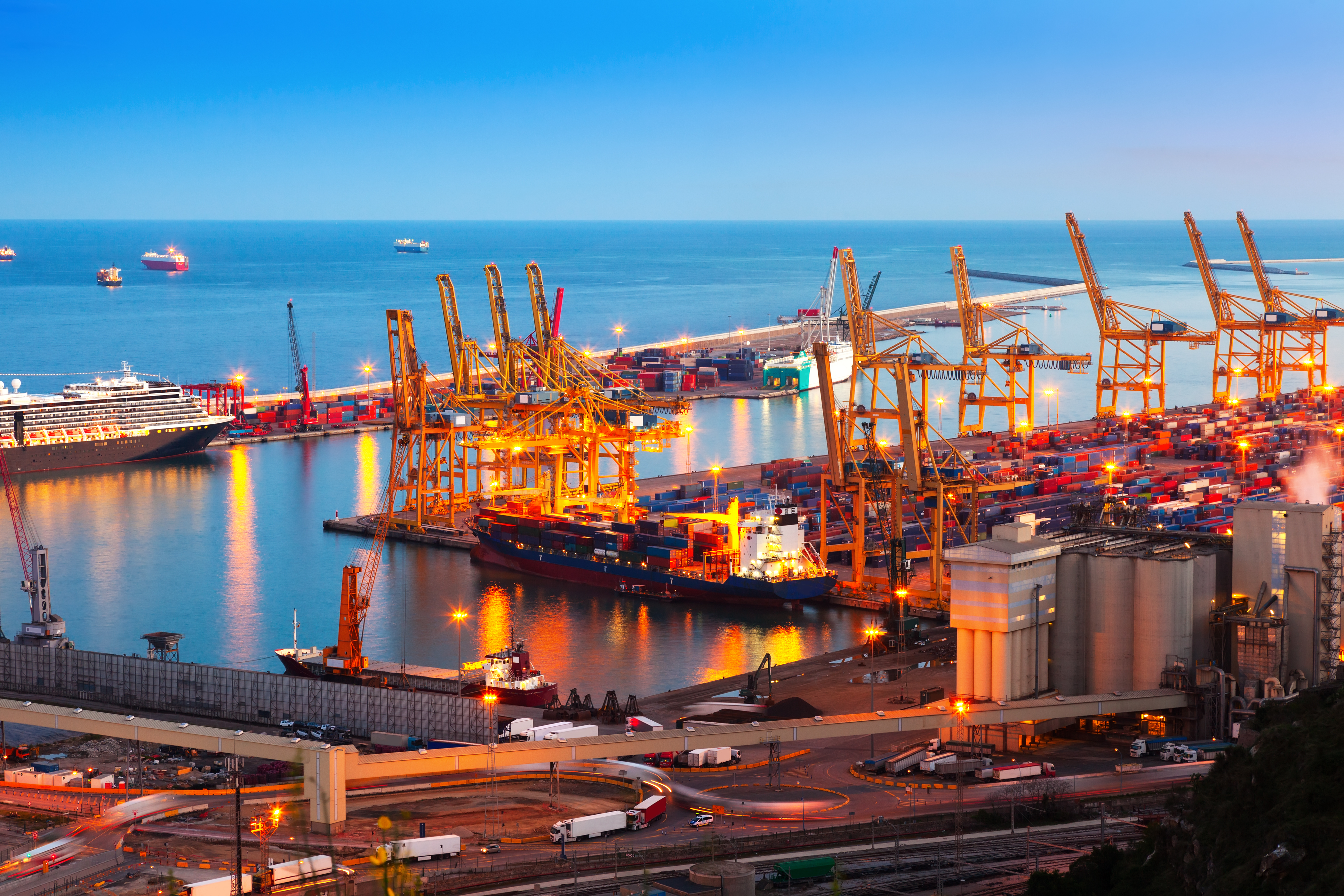Improving Industrial Logistics Outcomes with Smart Manufacturing Services

The market pressures witnessed in the 2021 holiday season highlight the value of taking on Smart Manufacturing capabilities, which enable manufacturers to make agile decisions and to keep pace with competitors. These revolutions have particular benefits in industrial logistics, as digitally connected supply chains and applied data can lead to heightened efficiency and better outcomes.
Despite this, relatively few manufactures have begun their transformation. To discover how Smart Manufacturing capabilities can improve logistical concerns, read on!
Smart Manufacturing Initiatives & Industrial logistics
While the Digital Transformation of the manufacturing sector is still in its adolescence, the pace of change remains hectic. According to a recent Forrester Report, while more than 90% of manufacturing decision-makers believe that digital transformation is important to their organization’s success, only 12% say that they have delivered digital transformation programs across their business.
Among the far reaching effects implementation of digital capabilities offer, industrial logistics stand to see some of the most significant benefits from Smart Manufacturing initiatives. At its core, the task of manufacturing logistics is to decrease production lead times, or the time from the moment at a work order is created until it becomes a finished product.
However, this is complicated by the unique reality of each production line. While broad themes and best practices are common across warehouses and supply chains, there’s no single solution that works across every industrial sector and operations change drastically based on the needs of each product.
The Challenges of Industrial Logistics Services
Recognizing that the means by which logistical processes are improved are dependent on the sub-sector of each product. Customization and awareness of these different sub-sectors are crucial to reduce costs and build an optimized logistical process. Here are a few of the major logistical challenges faced by industrial manufacturers:
1. Transportation Management Costs
Serving as the most significant issue manufactures face, transportation costs typically represent around 30% of budget expenses. Common strategies such as reducing carriers, consolidating shipments, reducing fuel expenses help in creating a reasonable bottom line, but come with significant limitations.
These strategies can be supported with a fleet management routing software that ensures freight carriers follow the most efficient routes by providing real-time traffic congestion updates, path finding to avoid road restrictions by vehicle type and more.
2. Improving Business Procedures
A common site of waste or slowdowns are necessary processes for documentation as shipments and trucks arrive at or leave the lot. For those businesses that have yet to enact digital transformations, many of these processes are still performed manually. Often, manufacturers work with logistics partners who will look beyond supply chain and logistical operations to implement changes within the overall operations framework.
3. Customer Services
More and more, customers also expect logistics partners to solve problems and help them grow in a competitive environment. Similarly, eCommerce is connecting customers to the production line. The customer experience has expanded and thus manufactures and logistics partners must consider how to enhance and standardize the customer experience across all geographies, channels and touch-points (i.e. phone, online chat, email or social media).
4. Supply Chain Visibility
In order to have timely delivery that remains accurate and consistent, it is a requirement to have full visibility on all aspects of the supply chain and the entire work flow, from the warehouse to delivery. Shipment tracking ensures drivers are following the prescribed route and adhering to the schedule. Similarly, notifications and alerts for disruptions should be set to ensure prompt action can be taken. This visibility also ensures that customers receive accurate updates, shipping notifications, ETAs, as well as providing means to track shipments on a web portal.
5. Fiscal Procedures and Regulatory Measures
According to Wall Street Journal, more than 40 agencies in the US are involved in trade shipments, many of which have release and hold authority over global shipments. Even when the shipments clear the ports, the US Consumer Product and Safety Commission, FDA, EPA and Dept of Agriculture need to give their approval, something that is complicated further for cross border shipments. Consequently, regulatory measures must be standardized portions of shipment and automating these steps can streamline delivery processes.
6. Economic Impacts
Political or economic volatility often directly influence manufacturing sector performance. Increases in the consumer price index, inflation, demands for products and added services, and otherwise are all likely to impact the sector adversely, which consequently impacts freight demand. These concerns have had a huge impact on the 2021 holiday season. This in combination with a growing labor shortage have significantly slowed logistical processes.
7. Sustainability
Anti-idling and emission reduction regulations have prompted a considerable focus on reducing carbon emissions. This issue is also influenced by public perceptions and cost savings that reducing emissions offers. Some sustainability strategies include adopting route and load optimization, tracking and reporting emissions, choosing alternative fuels, upgrading engines for emission compliance and better mileage. These strategies offer great savings long term, but often require significant investments.
Smart Logistics Outcomes in the Manufacturing Industry
While there are no simple solutions to these challenges, the digital capabilities that Smart Manufacturing capabilities bring offer ways to improve logistical pitfalls. Companies can harness these benefits to enhance the effectiveness of their business strategies. Here are some of the ways smart manufacturing can connect to logistical processes.
1. Connected Supply Chains
Advanced integration of the supply chain through digital transformation provide heightened transparency while creating new opportunities to improve operational efficiency and lower costs. Solutions with broader functions like machine learning, big data analytics and Internet of Things (IoT) sensors all present opportunities for dynamic scalability and extensible automation.
2. Broad Autonomization & Augmented intelligence
Extending the use of big data and cloud platforms enables manufactures and logistics partners to look across the supply network to find and implement opportunities for automation. This can eliminate waste associated with errors and streamline regulatory processes. Likewise, augmented intelligence can provide real-time updates that make disruption based changes clear for drivers and staff, creating heightened transparency.
3. Eco-Logistics
Smart logistics continue to redefine the environmental impacts of the supply network by implementing reverse logistics strategies that reutilize products and materials, or by using tools to calculate CO2 usage. This can be considered as a smaller piece of Green warehouse measures that reduce carbon footprint and production waste.
4. AI adoption for handling materials
Mismanagement of resources in the warehouse can serve as a major source of waste. Resource management tools augmented with AI platforms can be scaled with IoT solutions to provide real time views of available materials and automate systems to ensure that raw materials are handled adequately.
5. Digital Twins
Digital twin technology presents a virtual representation of all assets present on the factoy floor with the ultimate goal of acting as a virtualized monitoring and simulation tool for production line processes. These representations can extend across the supply network in order to act as intelligent information agents.
Source : stefanini.com



